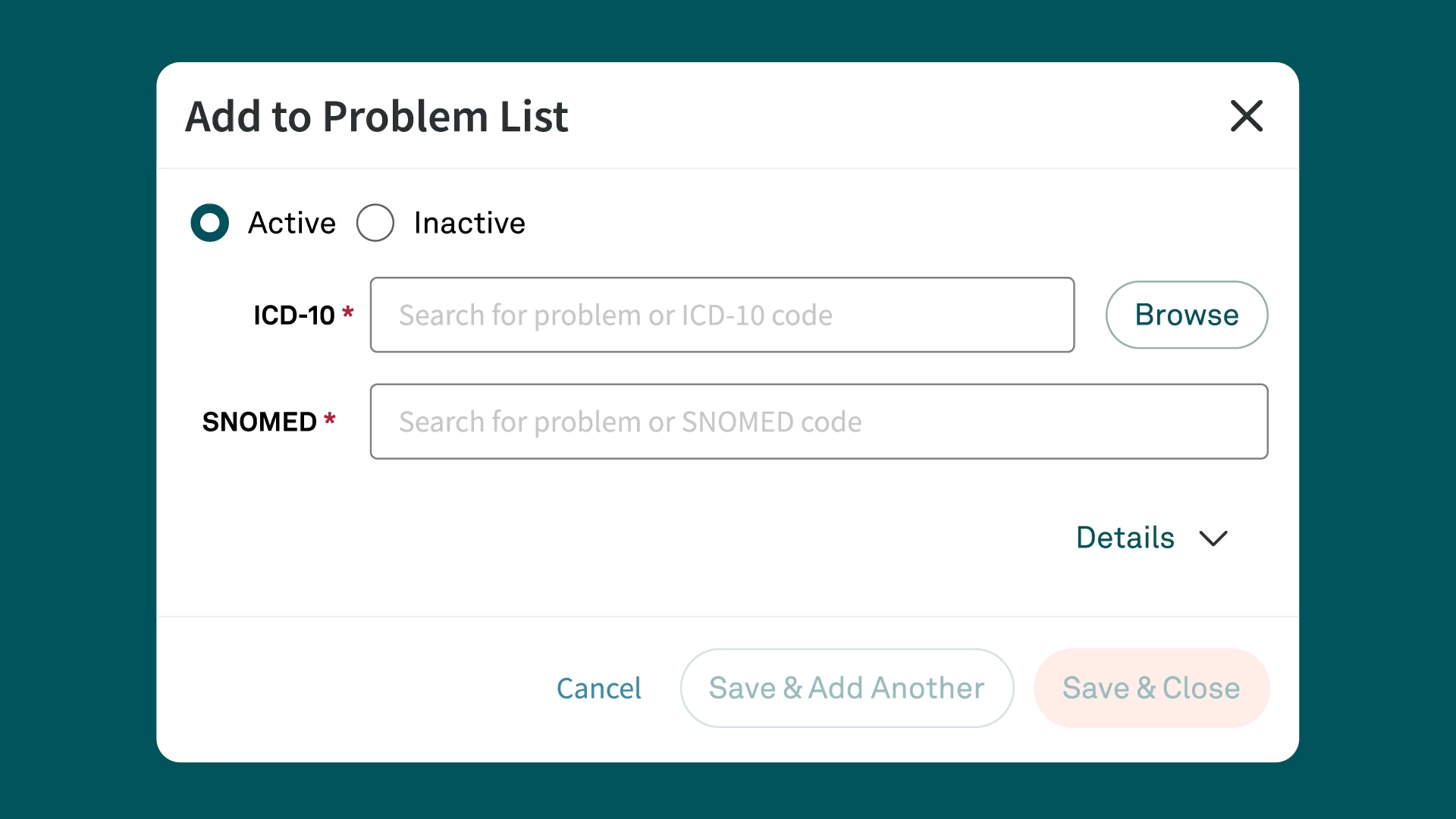ICD-10 Code E46
Unspecified protein-calorie malnutrition
What is the code E46?
The ICD-10-CM code E46 refers to "unspecified protein-calorie malnutrition." Healthcare providers use this code medical documentation to indicate a condition where a patient is suffering from malnutrition due to inadequate protein and calorie intake, but the severity of the malnutrition is not clearly defined.
Detailed description of E46
Use ICD-10 code E46 to identify cases of protein-calorie malnutrition where the provider has not specified the severity as mild, moderate, or severe. Protein-calorie malnutrition is a significant health issue that can lead to various complications, including weakened immune function, delayed wound healing, and overall poor health outcomes. This code is typically applied when the physician or healthcare provider has determined malnutrition is present but cannot specify the exact severity.
Symptoms commonly associated with E46
Patients diagnosed with E46 may exhibit a range of symptoms that indicate protein-calorie malnutrition, including:
- Unintentional weight loss
- Muscle wasting
- Fatigue and general weakness
- Poor concentration
- Frequent illnesses or infections
- Delayed wound healing
- Hair loss or brittle hair
- Dry, flaky skin
Related and similar ICD-10 codes
Several ICD-10 codes are related to E46 and may be used in more specific circumstances:
- E40: Kwashiorkor
- E41: Nutritional marasmus
- E42: Marasmic kwashiorkor
- E43: Unspecified severe protein-calorie malnutrition
- E44.0: Moderate protein-calorie malnutrition
- E44.1: Mild protein-calorie malnutrition
- E45: Retarded development following protein-calorie malnutrition
Each of these codes provides a more detailed classification of the type and severity of malnutrition.
Appropriate usage of E46 for billing
When using ICD-10-CM code E46 for billing purposes, ensure that the diagnosis of malnutrition is documented in the patient's medical record. Use this code when the healthcare provider has identified malnutrition but cannot classify it under a more specific code. Accurate documentation will support the use of this code in billing and help avoid claim denials.
Instructional notes and/or guidelines with E46
When coding for E46, it is essential to follow these guidelines:
- Ensure that the diagnosis of malnutrition is documented in the patient's medical record.
- Use this code only when the severity of malnutrition cannot be determined.
- Verify that the documentation supports the use of an unspecified code.
- Other terms that are coded to E46 are “malnutrition” and “protein-calorie imbalance.”
- Cross-reference with other relevant ICD-10 codes to ensure the most accurate coding possible.
- Codes that should never be used with E46 due to excludes 1 notes are:
- Nutritional deficiency not otherwise specified (E63.9)
- Be aware of any payer-specific guidelines that may affect the use of this code.
Common pitfalls in coding with E46
Some common pitfalls to avoid when coding with E46 include:
- Using E46 without adequate documentation to support the diagnosis of unspecified protein-calorie malnutrition.
- Failing to explore more specific ICD-10 codes that might better describe the patient's condition.
- Overlooking payer-specific guidelines and requirements that might lead to claim denials.
Key resources for E46 coding
To ensure accurate coding and billing for E46, healthcare providers can refer to several key resources:
- ICD-10-CM Official Guidelines for Coding and Reporting: These guidelines provide comprehensive instructions for using ICD-10 codes, including E46.
- Centers for Medicare & Medicaid Services (CMS): CMS offers a wealth of resources and updates on coding practices, including webinars, manuals, and bulletins.
- Professional coding organizations: Organizations like the American Health Information Management Association (AHIMA) and the American Academy of Professional Coders (AAPC) offer educational resources, certifications, and support for medical coders.
- Coding reference books and software: Reference materials such as the ICD-10-CM codebook can support medical coders and providers.
These resources provide detailed instructions and updates on coding standards and practices.
Conclusion
Use ICD-10-CM code E46 for documenting and billing cases of unspecified protein-calorie malnutrition. Proper usage of this code requires documentation and an understanding of related codes and guidelines. By avoiding common pitfalls and using available resources, healthcare providers can ensure accurate coding and support appropriate patient care.
Simplify ICD-10 code documentation with Tebra
Tebra’s EHR+ gives you quick searches and Systematized Nomenclature of Medicine (SNOMED) field names for efficient code documentation. Plus, Tebra automatically saves ICD-10 to SNOMED mapping for future searches, streamlining your workflow.

Discover how Tebra helps providers effortlessly document health-related issues and conditions in this detailed post.
Stay Ahead with Expert Healthcare & Billing Insights
Get the latest industry updates, financial tips, and expert strategies — delivered straight to your inbox.



